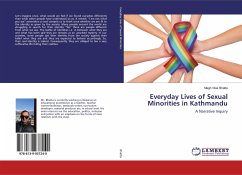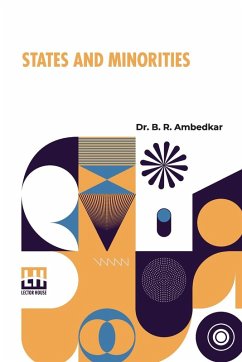
Human Rights and Sexual Minorities
GLBT rights in the public eye
Versandkostenfrei!
Versandfertig in 1-2 Wochen
39,99 €
inkl. MwSt.

PAYBACK Punkte
20 °P sammeln!
Revision with unchanged content. Some countries have extended full equal rights to sexual minorities (gay, les bian, bisexual, and transgender individuals and groups), while at the same time, others have not progressed or even regressed. Why? This study em ploys a case-study approach, emphasizing the processes of rights acquisition and the outcomes of those processes, to determine what characteristics are necessary for successful sexual minority rights acquisition movements in diverse settings. The traits examined are levels of development, cultural/atti tudinal orientations, governmental/inst...
Revision with unchanged content. Some countries have extended full equal rights to sexual minorities (gay, les bian, bisexual, and transgender individuals and groups), while at the same time, others have not progressed or even regressed. Why? This study em ploys a case-study approach, emphasizing the processes of rights acquisition and the outcomes of those processes, to determine what characteristics are necessary for successful sexual minority rights acquisition movements in diverse settings. The traits examined are levels of development, cultural/atti tudinal orientations, governmental/institutional opportunity structures, and characteristics of rights proponents organizations in four countries: Den mark, India, the Republic of South Africa, and the United States. To frame the discussion, relevant national debates in each country are analyzed. The presence or absence of any level of rights is most strongly informed by the cultural/attitudinal orientation of the country s elites and the organizational structure and legal/political strategy of the proponents. This book is address ed to scholars of and activists in GLBT movements, as well as students of poli tics and sociology.












